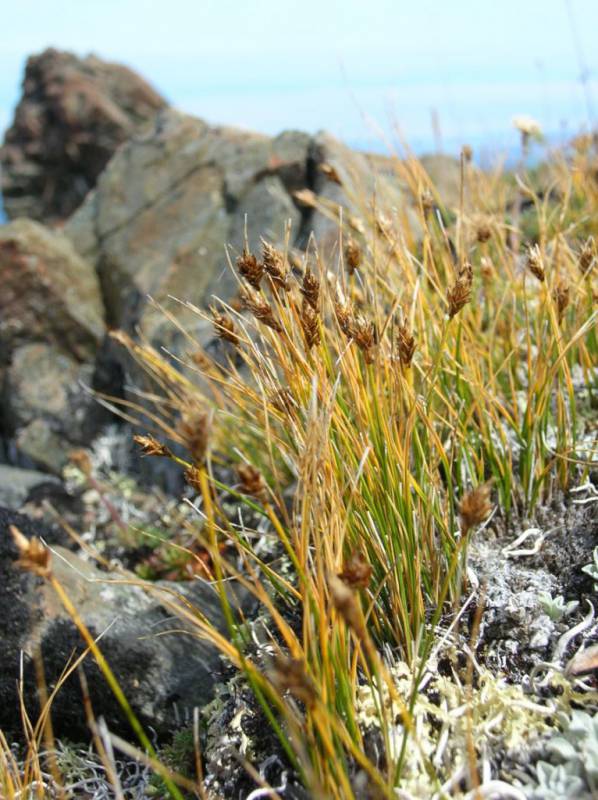Hosted by the University of Washington Herbarium, Burke Museum
Publication: Novit. Fl. Suec. Mant. 2: 55. 1839.
Origin: Native
Herbarium search: CPNWH
Notes: FNA23:"Much has been written about variation in Carex nardina, but little has been resolved. Russian taxonomists have long maintained that C. nardina is a species restricted to Iceland, Svalbard, Noway, and Sweden and is distinct at the rank of species from C. hepburnii (T. V. Egorova 1999). The differences of perigynia, cited by Egorova and well illustrated in A. Cronquist (1969), can define two taxa, which have been viewed as minor variations (E. Hultén 1958) or good species. The Scandinavian material does appear to constitute a single taxon, C. nardina.
In North America both forms occur, but without the clear geographic limits offered by A. E. Porsild (1943). Carex nardina and C. hepburnii differ in the following characteristics: perigynia shape: ovate or spindle-shaped versus obovate or broadly elliptic; size: (3–)3.5–5 × 1.4–1.6 mm versus 3–5 × 1.5–2mm; beak formation and size: gradually formed, 0.5 mm, obscure to 0.4 mm; stipe formation and size: distinct, 0.5–1 mm verusus obscure (less than 0.2 mm); and range: Iceland, Svalbard, Norway, North America, Russian Far East versus Sweden and possibly North America. In time, perhaps, a clearer picture of the taxa in North America will emerge.
Carex nardina superficially resembles taxa in Carex sect. Filifoliae and can be confused with Kobresia myosuroides."
Last updated 4/1/2020 by David Giblin.

